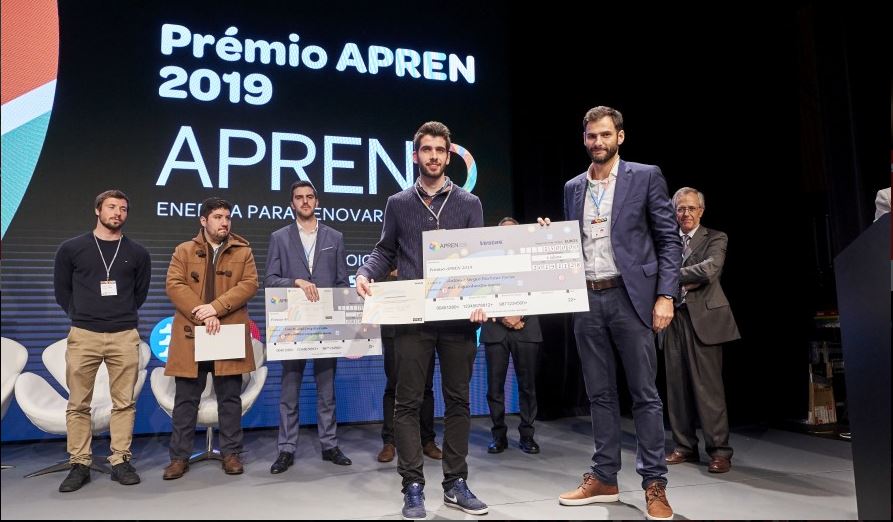António Faria, a researcher of the Centre for Power and Energy Systems (CPES), was the winner of the APREN Prize of 2019 in an edition in which Ricardo Emanuel Silva, also from CPES, received an honourable mention as well.
The Portuguese Renewable Energy Association (APREN) annually awards academic theses carried out in Portuguese higher education institutions related to electricity from renewable sources. With the thesis “A Chance-Constrained Approach for Electric Vehicle Aggregator Participation in the Reserve Market”, António Faria, a student of UP-FEUP, was ranked first, guaranteeing a monetary prize of EUR 1500.
On the other hand, the thesis, “Artificial Intelligence Techniques Applied for the Predictive Control of Stationary Storage”, by Ricardo Silva, received an Honourable Mention. The results were announced during the Portugal Renewable Summit 2019, APREN’s annual conference, which took place on 28 November, at the Fundação Oriente, in Lisbon.
The winning thesis, with the supervision of Manuel Matos and the co-supervision of Tiago Soares and Tiago Sousa (Technical University of Denmark – DTU) focused on the imminent insertion of electric vehicles (EVs) and in particular on ways in which these elements can be used to help the power system. «The thesis proposes a new optimisation model in order to solve the problem that the aggregator of EVs raises to provide reserves, since there is uncertainty and associated risk. Thus, the Big-M and the McCormick methods are applied in order to analyse the risk that the aggregator submits on the market, and the model is validated and tested for different numbers of scenarios and risk levels», explained António Faria.
Ricardo Emanuel Silva’s thesis, supervised by Ricardo Jorge Bessa, intended to develop a comparative study among artificial intelligence agents aimed at optimising the scheduling charge and discharge cycles of batteries in the context of a residence equipped with renewable production (photovoltaic production in this case). «The self-consumption and arbitrage of price were explored as optimisation goals. The use of machine learning, in particular the reinforcement learning, was related to the difficulty in modelling a battery (in this case, a lithium battery) in a realistic way, which is difficult to address by classic non-linear optimisation solvers. The several trained agents were concluded to be capable of addressing the problem, especially when aimed at maximising the self-consumption”, explained the researcher.
The researchers mentioned in this news piece are associated with INESC TEC and UP-FEUP.




 News, current topics, curiosities and so much more about INESC TEC and its community!
News, current topics, curiosities and so much more about INESC TEC and its community!